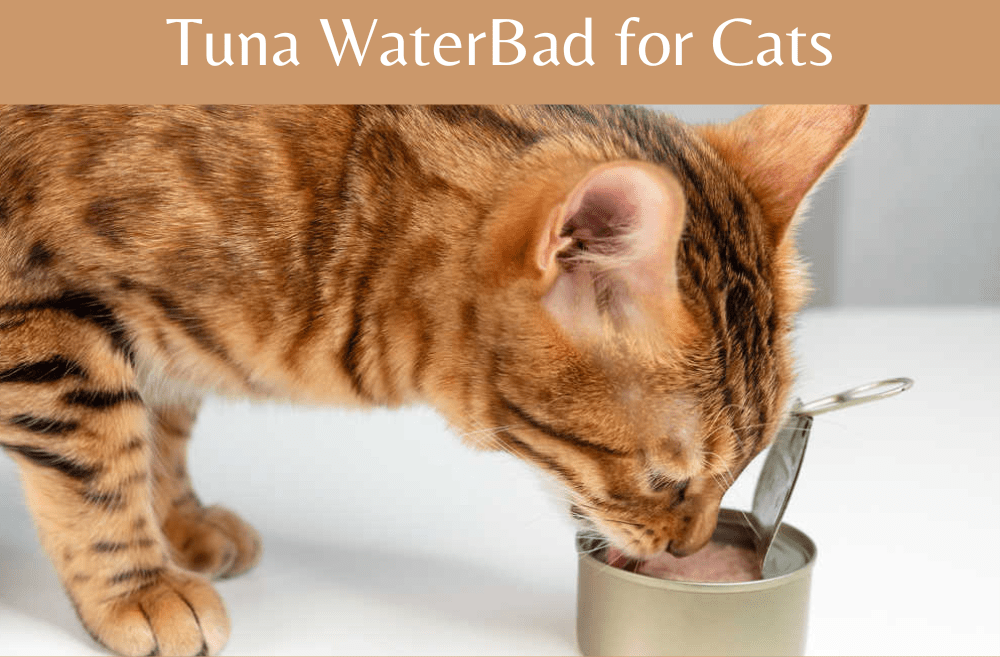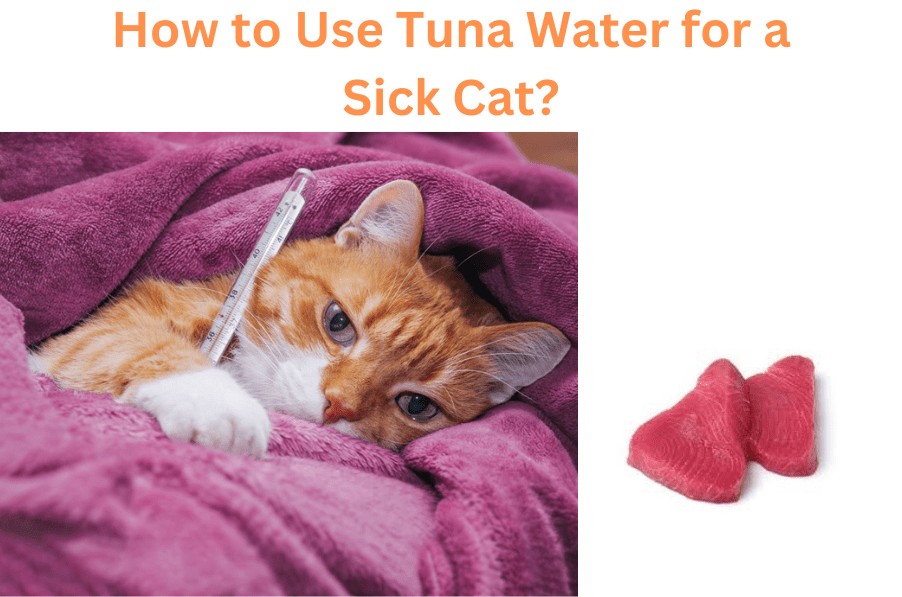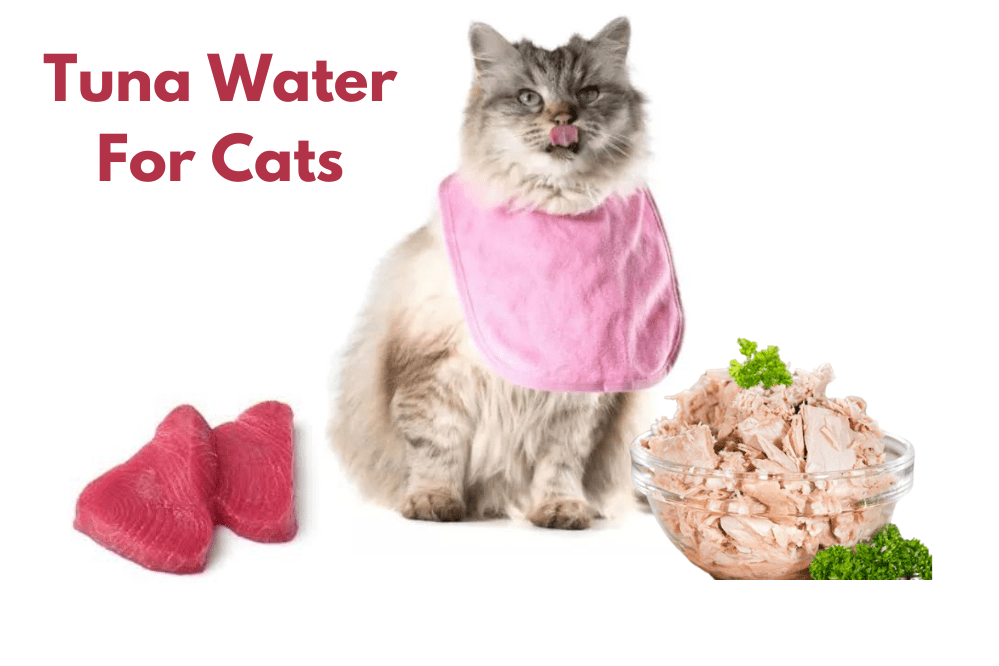Tuna water is the liquid that comes from canned tuna, and some cat owners like to give it to their cats as a treat or a supplement. However, is tuna water perfect for cats, or does it pose some health risks? In this article, we will explore the benefits and drawbacks of tuna water for cats, and provide some tips on how to make and use it safely.
Contents
- 1 Benefits of Tuna Water for Cats
- 2 Drawbacks of Tuna Water for Cats
- 3 How to Make and Use Tuna Water for Cats Safely
- 4 Is tuna juice OK for cats with kidney disease?
- 5 How much tuna is safe for cats?
- 6 Canned tuna water for cats
- 7 How to use tuna water for a sick cat?
- 8 Is tuna broth good for cats?
- 9 Conclusion
- 10 FAQs on tuna water for cats
Benefits of Tuna Water for Cats
Tuna water can have some benefits for cats, such as:
- Hydration: Tuna water can help cats stay hydrated, especially if they do not drink enough water from their bowls. Hydration is important for cats’ overall health, as it helps prevent urinary tract infections, kidney problems, and dehydration.
- Appetite stimulation: Tuna water can entice cats to eat more, especially if they are sick, elderly, or have a low appetite. Tuna water can also be mixed with dry or wet food to make it more palatable and moist.
- Nutrition: Tuna water can provide some protein, omega-3 fatty acids, and vitamins for cats. These nutrients can support cats’ immune system, skin, coat, and brain health.
Drawbacks of Tuna Water for Cats
Tuna water can also have some drawbacks for cats, such as:
- Mercury poisoning: Tuna is a fish that can accumulate high levels of mercury, a toxic metal that can harm cats’ nervous system, kidneys, and liver. Tuna water can also contain mercury, and giving too much of it to cats can lead to mercury poisoning, which can cause symptoms such as tremors, seizures, blindness, and death.
- Malnutrition: Tuna water is not a complete and balanced diet for cats, and it can cause nutritional deficiencies if given too often or in large amounts. Tuna water can lack essential amino acids, such as taurine, that cats need for their heart, eye, and reproductive health. Cat water can also be high in sodium, which can cause dehydration, high blood pressure, and heart problems in cats.
- Addiction: Tuna water can be very addictive for cats, as they love the smell and taste of it. However, this can make them reject their regular food, and become dependent on tuna water. This can lead to picky eating, weight loss, and malnutrition in cats.

How to Make and Use Tuna Water for Cats Safely
If you want to give tuna water to your cats, here are some tips on how to make and use it safely:
- Choose low-mercury tuna: Not all tuna are the same, and some have lower mercury levels than others. According to the Environmental Defense Fund, the safest tuna for cats are light tuna, skipjack tuna, and tongol tuna. Avoid albacore tuna, yellowfin tuna, and bigeye tuna, as they have higher mercury levels.
- Choose water-packed tuna: Tuna can be packed in water or oil, and water-packed tuna is better for cats, as it has less fat and calories. Oil-packed tuna can also cause diarrhea, vomiting, and pancreatitis in cats.
- Use tuna water sparingly: Tuna water should not be given to cats more than once or twice a week and in small amounts, such as a tablespoon or two. Tuna water should not replace cats’ regular food but only be used as a treat or a supplement.
- Make your tuna water: You can make your tuna water by boiling fresh or frozen tuna in water, and straining the liquid. This way, you can control the amount of salt and additives in the tuna water, and make it fresher and healthier for your cats.
Is tuna juice OK for cats with kidney disease?
Tuna juice is a tempting treat for cats, but it may not be the best choice for cats with kidney disease. Tuna juice can be high in sodium, phosphorus, and mercury, which can worsen kidney problems and cause dehydration, mineral imbalance, and toxicity.
Tuna juice also lacks essential nutrients that cats need, such as taurine, vitamin E, and arachidonic acid. Therefore, tuna juice should only be given to cats with kidney disease in very small amounts and occasionally, and only after consulting with a veterinarian.
A better option for cats with kidney disease is to provide them with fresh water and a prescription diet that is low in protein, phosphorus, and sodium, and high in moisture, omega-3 fatty acids, and antioxidants.
How much tuna is safe for cats?
Tuna is a popular food for cats, but it should not be their main diet. Tuna can be high in mercury, which can accumulate in the cat’s body and cause neurological damage, kidney failure, and anemia.
Tuna can also cause malnutrition, obesity, or addiction in cats, as it lacks essential nutrients that cats need, such as taurine, vitamin E, and arachidonic acid. Tuna can also interfere with the absorption of other nutrients, such as vitamin B1 and iron.
Therefore, tuna should only be given to cats as an occasional treat, and in moderation. The recommended amount of tuna for cats is no more than one ounce per 3 pounds of body weight per week. This means that an average 10-pound cat should not have more than 3 ounces of tuna per week.
Suggested: Can Cats Eat Watermelon?
Canned tuna water for cats
Canned tuna water is not toxic to cats, but it is not a healthy or balanced treat either. It can contain high levels of sodium, mercury, and BPA, which can be harmful to cats in large or frequent doses. It can also cause weight gain, malnutrition, or addiction in some cats.
Therefore, it is best to limit the amount of canned tuna water you give to your cat, and only offer it as an occasional treat or incentive. A better alternative would be to provide your cat with fresh water and high-quality food that meets their nutritional needs. 🐱
How to use tuna water for a sick cat?
Tuna water is the liquid that comes from canned tuna. It can be used to entice a sick cat to eat or drink, as it has a strong smell and taste that cats love. Tuna water can also provide some hydration and omega-3 fatty acids to a sick cat.
However, tuna water should not be used as a substitute for water or a balanced diet, as it can be high in sodium, phosphorus, and mercury, which can cause health problems in cats. Tuna water also lacks essential nutrients that cats need, such as taurine, vitamin E, and arachidonic acid.
Therefore, tuna water should only be used for sick cats in small amounts and temporarily, and only after consulting with a veterinarian. A better option for sick cats is to provide them with fresh water and a prescription diet that is suitable for their condition.

Is tuna broth good for cats?
Tuna broth is a liquid that is made by simmering tuna in water, with or without added seasonings. It can be a tasty treat for cats, but it may not be very healthy for them.
Tuna broth can be high in sodium, phosphorus, and mercury, which can cause health problems in cats, such as dehydration, mineral imbalance, and toxicity. Tuna broth can also lack essential nutrients that cats need, such as taurine, vitamin E, and arachidonic acid.
Therefore, tuna broth should only be given to cats in very small amounts and occasionally, and only after consulting with a veterinarian. A better option for cats is to provide them with fresh water and a complete and balanced diet that meets their nutritional needs.
Conclusion
Tuna water for cats can be a tasty treat or a risky choice, depending on how you make and use it. Tuna water can have some benefits for cats, such as hydration, appetite stimulation, and nutrition, but it can also have some drawbacks, such as mercury poisoning, malnutrition, and addiction.
Therefore, it is important to choose low-mercury, water-packed tuna, and use tuna water sparingly and safely for your cats.
FAQs on tuna water for cats
Q: What is tuna water and how can I make it for my cat?
- A: Tuna water is the liquid that comes from canned tuna or from simmering fresh tuna in water. It can be used as a treat or a supplement for cats, as it has a strong smell and taste that cats love. To make tuna water, you can either drain the liquid from a can of tuna that is packed in spring water or boil some fresh tuna in water for about 15 minutes and strain the broth. You can also add some seasonings like parsley or catnip to enhance the flavor2.
Q: What are the benefits of tuna water for cats?
- A: Tuna water can provide some hydration and omega-3 fatty acids to cats, which can support their skin, coat, and immune system health. Tuna water can also entice a sick cat to eat or drink or help them take medication. Tuna water can also be a tasty treat for cats, as they enjoy the flavor and smell of tuna.
Q: How much tuna water can I give to my cat?
- A: Tuna water should only be given to cats in moderation and occasionally, as it can also have some drawbacks. Tuna water can be high in sodium, phosphorus, and mercury, which can cause health problems in cats, such as dehydration, mineral imbalance, and toxicity. Tuna water can also lack essential nutrients that cats need, such as taurine, vitamin E, and arachidonic acid. Therefore, tuna water should not be used as a substitute for water or a balanced diet, but as a supplement or a treat. The recommended amount of tuna water for cats is no more than one ounce per 3 pounds of body weight per week. This means that an average 10-pound cat should not have more than 3 ounces of tuna water per week.
Q: Can I feed my cat fresh tuna or canned tuna instead of tuna water?
- A: Fresh tuna or canned tuna can also be given to cats as an occasional treat, but not as their main diet. Fresh tuna or canned tuna can have the same drawbacks as tuna water, such as high levels of sodium, phosphorus, and mercury, and low levels of essential nutrients. Fresh tuna or canned tuna can also cause malnutrition, obesity, or addiction in cats, as they may prefer tuna over other foods. Fresh tuna or canned tuna can also interfere with the absorption of other nutrients, such as vitamin B1 and iron1. Therefore, fresh tuna or canned tuna should only be given to cats in small amounts and rarely, and only after consulting with a veterinarian. A better option for cats is to provide them with a complete and balanced diet that meets their nutritional needs.
Q: Are there any alternatives to tuna water for cats?
- A: Yes, other options can provide hydration and nutrition to cats, without the risks of tuna water. Some examples are:
- Cat milk: Cat milk is a specially formulated product that is lactose-free and enriched with vitamins and minerals. Cat milk can be a good source of hydration and calcium for cats, and can also help them with digestion and hairball control.
- Bone broth: Bone broth is a liquid that is made by simmering bones and meat in water, with or without added seasonings. Bone broth can be a good source of hydration and protein for cats, and can also help them with joint health and immune system support.
- Wet cat food: Wet cat food is a type of cat food that has a high moisture content and a variety of flavors and textures. Wet cat food can be a good source of hydration and nutrition for cats, and can also help them with dental health and urinary tract health.




